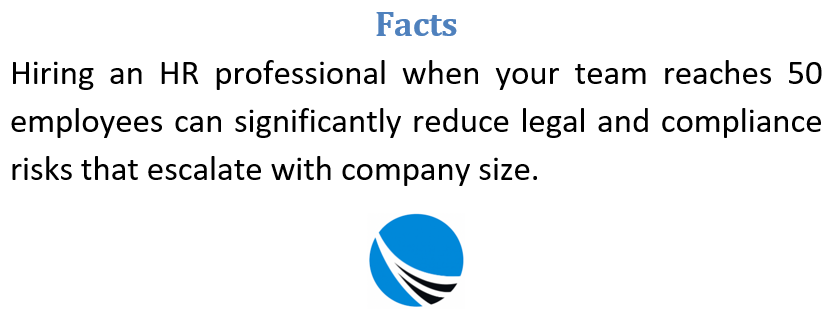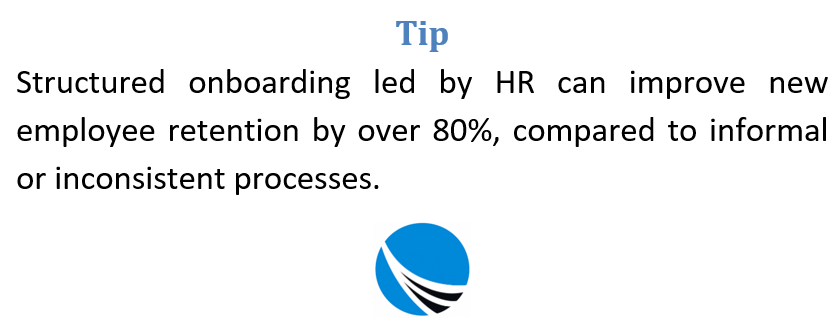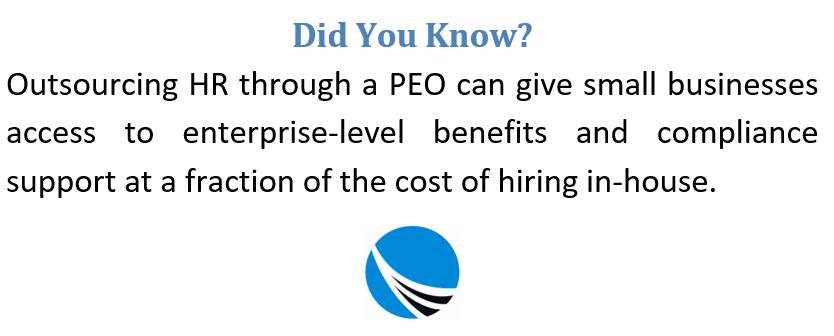Running a business involves countless responsibilities, and as your team expands, managing people becomes more complex. While entrepreneurs often wear many hats at the beginning—including human resources—there comes a time when hiring a dedicated HR professional is no longer optional but essential. This guide outlines the clear signs that indicate it’s time to add an HR expert to your team and how to do it effectively.
Understanding the Role of HR in Growing Businesses
Human Resources, often abbreviated as HR, encompasses a wide array of functions that shape how a business attracts, manages, and retains talent. From recruitment and onboarding to employee development, legal compliance, and workplace culture, HR touches every aspect of the employee experience.
In small businesses, these tasks are frequently managed by the founder or distributed informally among team members. However, as your company scales, this ad hoc approach may no longer serve your business effectively. The tipping point usually comes when HR responsibilities begin to interfere with core business activities or expose the company to legal and operational risks.

1. You’re Spending Too Much Time on HR Tasks
In the early stages of a business, it makes sense for founders to handle HR. But as your time gets stretched thin, you may find yourself answering benefits questions, writing job descriptions, organizing performance reviews, or dealing with compliance paperwork instead of focusing on strategy or revenue-generating tasks.
If administrative work is eating up a large chunk of your week—especially 15 to 20 hours or more—this may be the signal to shift those duties to a dedicated HR expert. The cost of hiring may be far less than the opportunity cost of ignoring strategic initiatives or client development because you’re caught up in paperwork.
Start asking: What could you accomplish if someone else handled these tasks? Would your time be better spent on innovation, partnerships, or scaling operations?

2. Legal Compliance Is Becoming Overwhelming
Employment laws are layered and can vary significantly across jurisdictions. When you operate in multiple states or have a diverse workforce, staying legally compliant becomes more than just a side task—it becomes a full-time responsibility.
Unintended violations—such as overlooking workplace safety requirements, mishandling termination, or improperly categorizing workers—can lead to fines, lawsuits, or reputational harm. Even seasoned business owners can feel unsure about whether they’re fully compliant.
If you frequently find yourself second-guessing decisions or spending hours researching employment laws online, it’s time to consider professional help. An HR professional brings expertise that reduces liability, boosts confidence, and ensures your business operates within legal parameters.
3. Hiring and Retaining Employees Is a Struggle
Attracting top talent requires more than just placing a job ad. In today’s market, where flexibility, benefits, and development opportunities matter, small businesses need to offer more than a paycheck.
Without a structured hiring process and a strong onboarding experience, you risk losing good candidates or failing to engage new hires effectively. Worse, your turnover rates may climb if employees don’t see a path to grow.
A seasoned HR practitioner can streamline recruitment, create meaningful onboarding experiences, and establish employee development plans. These not only support individual growth but also strengthen your company’s overall performance and reputation as an employer of choice.
4. Your Team Is Expanding Rapidly
Rapid growth often exposes gaps in communication, process, and structure. What once worked for a team of 10 may fall apart at 30 or 50 employees. Disputes become more likely, policies become outdated, and inconsistent practices can lead to dissatisfaction.
As your company scales, you’ll need standardized procedures around performance reviews, job descriptions, compensation, and even conflict resolution. Without this foundation, your growth can stall or regress due to internal confusion or friction.
If your team has grown significantly—or is about to—planning ahead by hiring an HR professional can help manage expansion in an orderly and productive way. Even if you can’t hire someone full-time yet, you might explore part-time consultants or HR service providers as an interim solution.
5. Your Compensation Strategy Isn’t Competitive
Struggling to attract or retain staff? It could be a sign your compensation structure needs an overhaul. Employees are increasingly comparing salaries, benefits, and work-life balance. If your offerings lag behind, you may lose talent to competitors who invest more in their people.
An HR expert can help you benchmark salaries, review benefits, and manage payroll systems to remain competitive. They can also monitor industry trends, track time off, and handle compliance for leave policies—key tasks as you grow your workforce.
In addition, HR technology tools like payroll software or benefits management systems can streamline administrative tasks. An HR hire familiar with such platforms can integrate and optimize these tools for your business, saving time and ensuring accuracy.
6. You’re Concerned About Preserving Company Culture
Culture defines how people interact, collaborate, and grow together in a workplace. As your team grows, maintaining a strong and consistent culture becomes harder—but even more critical.
Culture includes everything from communication norms and feedback practices to values and mission alignment. It also influences how your business is perceived externally—especially by job candidates and clients.
If you’re noticing that the values you started with are becoming diluted, or that engagement and morale are dropping, it may be time for a dedicated HR leader to help. They can design recognition programs, coordinate wellness initiatives, support employee feedback systems, and establish a culture that scales.
7. You’re Held Back by Uncertainty or Hesitation
Even if you understand the benefits of hiring an HR professional, you may hesitate out of fear—fear of letting go, fear of hiring the wrong person, or fear of cost. These concerns are valid. HR plays a sensitive role involving confidential matters and shaping company direction.
However, indecision can also stall your company’s progress. If you’ve recognized a need for HR support and have the means to hire, waiting may lead to bigger challenges down the road. Think of hiring an HR person as not just bringing on help, but as investing in your infrastructure.
It’s normal to feel nervous about handing over control, but the right hire can become one of your greatest assets.

How to Recruit Your First HR Professional
Once you’ve decided to move forward, take your time to recruit someone who aligns with your vision. Here are practical steps to guide the process:
Define Your HR Needs
Clarify what you expect from the role. Are you looking for someone to oversee hiring? Manage compliance? Shape culture? Knowing this helps you identify the level of seniority and skillset you need—whether that’s a generalist or someone with specialized HR expertise.
Craft a Detailed Job Description
Include not just responsibilities, but also an overview of your company values, team structure, and long-term goals. This helps attract candidates who resonate with your company culture and growth trajectory.
Cast a Wide Net
Post on reputable job boards, reach out to your network, and consider working with recruiters who specialize in HR roles. You want a diverse pool of candidates to ensure the best fit.
Assess Beyond the Résumé
Use interviews to evaluate not just technical competence, but also emotional intelligence, communication style, and alignment with your leadership philosophy. HR professionals need to be trustworthy, empathetic, and proactive.
Make a Competitive Offer
Research industry benchmarks and ensure your compensation package reflects market expectations. Be transparent about performance expectations and offer development opportunities that show you’re invested in your new hire’s success.
Alternatives to Hiring In-House HR
If you’re not ready to commit to a full-time HR staffer, there are viable alternatives to explore:
- HR consultants: Offer short-term support for specific challenges like legal compliance or hiring.
- Part-time or fractional HR professionals: Provide ongoing support without the cost of a full-time salary.
- HR outsourcing services (HRO): Handle specific functions such as payroll, benefits, or recruiting.
- Professional Employer Organizations (PEOs): Provide comprehensive HR services and often co-employ your workers to reduce liability.
Each option has trade-offs in terms of cost, control, and customization, so choose what suits your current scale and needs.
Building the Foundation for Long-Term Success
Adding HR to your business isn’t just about handling paperwork or following regulations—it’s about investing in your people and future-proofing your company. With the right HR partner in place, you can:
- Improve operational efficiency
- Retain top performers
- Strengthen culture and morale
- Mitigate legal risk
- Focus your leadership energy on strategic growth
Whether you hire in-house or partner with an external provider, prioritizing HR sends a powerful signal to your team and investors alike: you’re serious about building a business that’s not only profitable, but also sustainable, ethical, and people-focused.
Frequently Asked Questions about Hiring an HR
When should a small business consider hiring its first HR person?
When HR tasks start consuming too much of the owner’s time, or compliance, hiring, and employee development needs become too complex or risky to manage alone.
How much time spent on HR signals the need for a professional?
Spending more than 15–20 hours per month on HR tasks like onboarding, compliance, or benefits is a strong sign it’s time to hire someone.
What legal risks can arise without proper HR support?
Lack of HR oversight can lead to violations in labor laws, improper terminations, wage misclassification, and increased vulnerability to lawsuits or fines.
How does HR improve recruitment and retention?
An HR professional brings structure to hiring, onboarding, and career development, making your business more appealing and supportive for new and current employees.

What role does HR play in company culture?
HR helps design and uphold a positive workplace culture, ensuring values, communication practices, and employee engagement remain strong as the team grows.
Is hiring an in-house HR person the only solution?
No. Businesses can also consider part-time HR staff, consultants, or outsourcing services like PEOs and HROs until they’re ready for a full-time hire.
What should you look for in your first HR hire?
Look for someone who aligns with your company’s values, understands compliance and people management, and can operate independently while collaborating with leadership.
What’s the biggest benefit of delegating HR?
It frees up leadership to focus on high-impact activities while ensuring employee management, legal compliance, and workplace culture are handled professionally.

